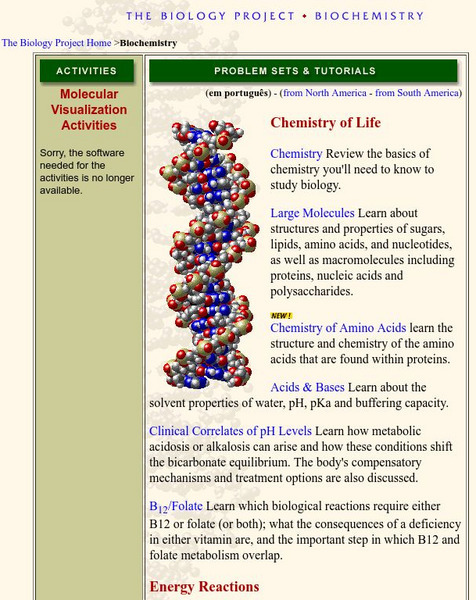National Institutes of Health
Ncbi: The Molecular Biology of the Cell: The Chemical Components of a Cell
Advanced chapter of the book "The Molecular Biology of the Cell" describes and provides illustrations of our most current understanding of the chemical makeup of cells and their components. Explains in detail how electron activity keeps...
American Chemical Society
Middle School Chemistry: Lesson Plans: Temperature Changes in Dissolving
Media-rich lesson in which students discover that it takes energy to break bonds, and that energy is released when bonds are formed during the process of dissolving. They also determine whether dissolving is either exothermic or...
University of Arizona
University of Arizona: Biochemistry
Problem sets, tutorials, and activities related to biochemistry.
Concord Consortium
The Molecular Workbench Database: Chemical Reactions and Stoichiometry
This simulation helps students investigate the basics of chemical equations. Students will review stoichiometry and what effects their reaction rates.
Concord Consortium
Concord Consortium: Where Does All the Energy in an Explosion Come From?
In this module Activity 3 investigates What changes in energy occur when atoms rearrange during a chemical reaction? This activity explores the relationship between energy and chemical reactions. A bonus reading includes Energy and...
Science Education Resource Center at Carleton College
Serc: Investigating Diffusion of Molecules in Liquid
Scientific inquiry activity where students investigate how molecules move in liquid. They will observe that molecules in liquid move in a random manner and that heat will increase and cold will decrease the speed of molecular movement in...
Museum of Science
The Atom's Family: Mighty Molecules
In this activity, students construct models of molecules using marshmallows and gum drops.





